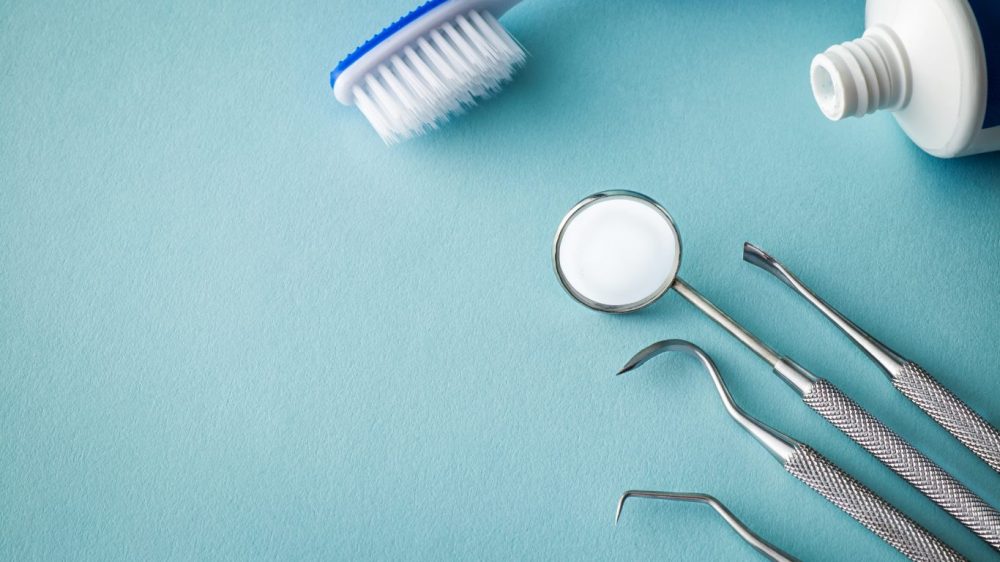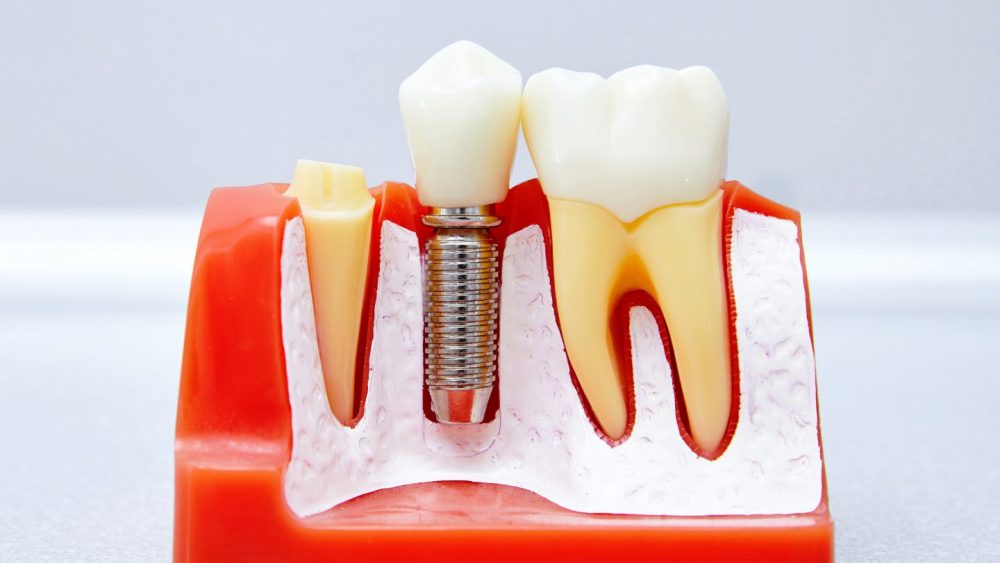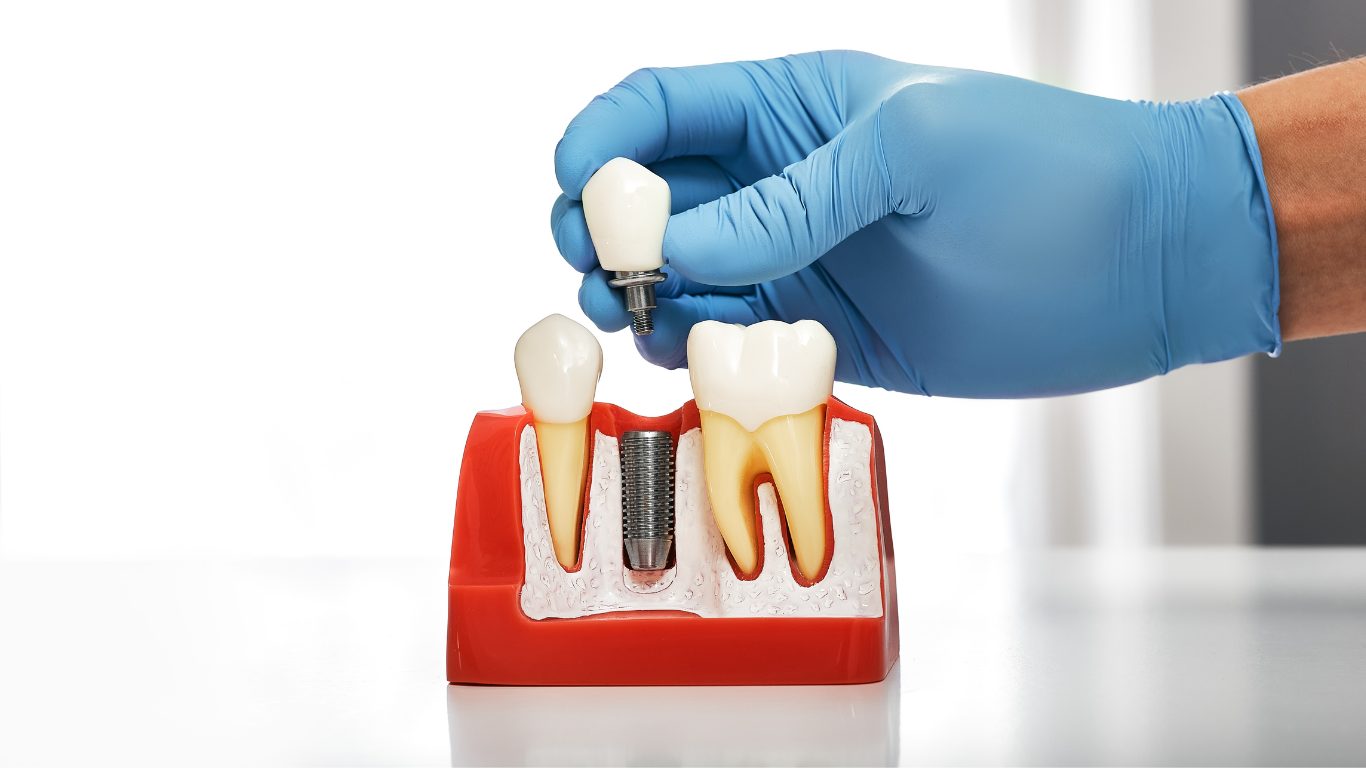
7 Things You Didn’t Know About Professional Teeth Whitening
February 8, 2023
Signs You Need To See A Dentist
March 25, 2023Key Takeaways:
Benefits of Implants:
Dental implants restore function and aesthetics, preventing adjacent teeth from shifting and preserving jawbone health.
Procedure Overview:
The process involves implant placement in the jaw, followed by a custom crown, with a healing period before the final restoration.
Ideal Candidates:
Good candidates are generally healthy with sufficient jawbone density; smokers and individuals with uncontrolled health conditions may face complications.
Dental implants may improve your appearance and quality of life if you have a missing tooth or are about to get a tooth extracted. A dental tooth implant looks and functions almost like a real tooth.
Keep in mind this article is for educational purposes and not a substitute for personalized dental care. To learn more about whether implants are right specifically for you, a knowledgeable dentist must help you navigate that decision.
Forbes reports that dental implants are becoming an increasingly popular option to replace missing teeth. They predict that by 2026 around 23% of Americans may have a dental implant.
Why People Get Implants
When you lose a tooth, it usually affects your mouth’s overall balance and function. Some problems that may arise include:
- You may feel self-conscious smiling, speaking, or opening your mouth.
- Teeth shift position over time and generally keep each other in place. The teeth adjacent to the missing tooth may creep into its space.
- Your teeth fit together differently, which can change how you bite down or chew.
- After losing a tooth, people experience bone loss in the jaw.
- It can change speech.
An implant is a permanent solution. Another alternative is wearing a removable dental appliance like a partial denture or bridge. Many patients appreciate the convenience of dental implants.
How Dental Implants Work
There are a few parts to a dental implant. First, the implant body is placed in the jaw. Your dentist puts a custom-made crown over it that looks similar to your other teeth. Then there is also a metal post called an abutment and an abutment fixation screw.
The United States Food and Drug Administration (FDA) has standards about what implants can legally be used in the U.S. The implants must be made from material considered safe for medical and dental uses as determined by the International Organization for Standardization (ISO) or ASTM International. Usually, they are made from titanium or zirconium oxide, but other well-studied materials may be used.
Getting Dental Implants
The FDA offers tips for people planning to get dental implants. They recommend you talk with your dentist about the specific brand and type of appliances they implant. They suggest you keep notes of the discussion for your reference.
Be aware that it takes time for the body to heal, it may take weeks or months before your mouth heals and your dentist places the permanent crown. Discuss possible healing time with your dentist, as they are more likely to know specifics for patients with a similar medical history to yours.
Be sure to follow your dentist’s recommendations for self-care and oral hygiene before and after the procedure. The advice helps ensure your mouth is healthy enough to heal well and that the implant lasts.
Sometimes patients ask us whether getting a dental implant is painful. Since it is a form of oral surgery, we use anesthetic for your comfort. In the days and weeks following the procedure, you will likely experience swelling and tenderness while healing. Talk with your dentist or oral surgeon about pain management.
Are You a Good Candidate for Dental Implants?
Your dentist will need to determine you are a good candidate who would benefit from the procedure. This means you are in good overall general health with enough bone density in your jaw to support an implant. Sometimes bone grafting techniques can restore the strength of your jawbone enough to provide healthy support to an implant.
Since smoking hinders the body’s natural healing process, the ideal candidate is also a nonsmoker, as with most elective procedures. Uncontrolled diabetes also causes delayed healing, so seek treatment before getting elective procedures like implants.
Finally, implants are best suited to people who are fully grown, so children are not yet good candidates for implants since their facial structure is still developing. Mature teens may be good candidates.
Risks of Dental Implants
We have already covered some of the benefits of implants. They offer both cosmetic benefits, like the feeling of confidence from not having a missing tooth, to medical benefits, like preventing bone loss in the jaw. Like any medical procedure, implants also carry risks.
The risk is why your dentist will want to review your medical history and lifestyle as well as examine you to determine whether you are a good candidate.
The FDA outlines risks including:
- Injury to nearby teeth caused by the implants
- Risk of injury during the operation to the mouth, sinuses, jawbone, or face
- The sensation of a loose or twisting tooth
- If the implant doesn’t fit well, it may not function as expected
- Sometimes the immune system rejects foreign objects like implants leading to infection or delayed healing
- Trouble flossing around the implant potentially indirectly leads to gum disease
- Numbness or nerve impingement after the procedure
- Distorted x-rays and dental images, always inform providers of your implants before any kind of MRI or x-rays to the area
The risks are relatively rare, and that is why we encourage you to follow your dentist’s recommendations, including oral hygiene and post-implant care guidelines.
Schedule a Consultation
The complete process, from consultation to the installation of the implants and crown, takes time. It is done in stages to allow the body to heal. Implants can replace a single tooth or several teeth. There are so many variables, but your dentist should walk you through the specifics most relevant to your situation.
It all starts with a consultation. Find a local cosmetic dentist or oral surgeon with experience and a successful track record. If you live in Charlotte, Southview Dentistry has a history of transforming our patient’s smiles. Implants provide the look and feel of your natural teeth. Contact us today to schedule a consultation appointment.




